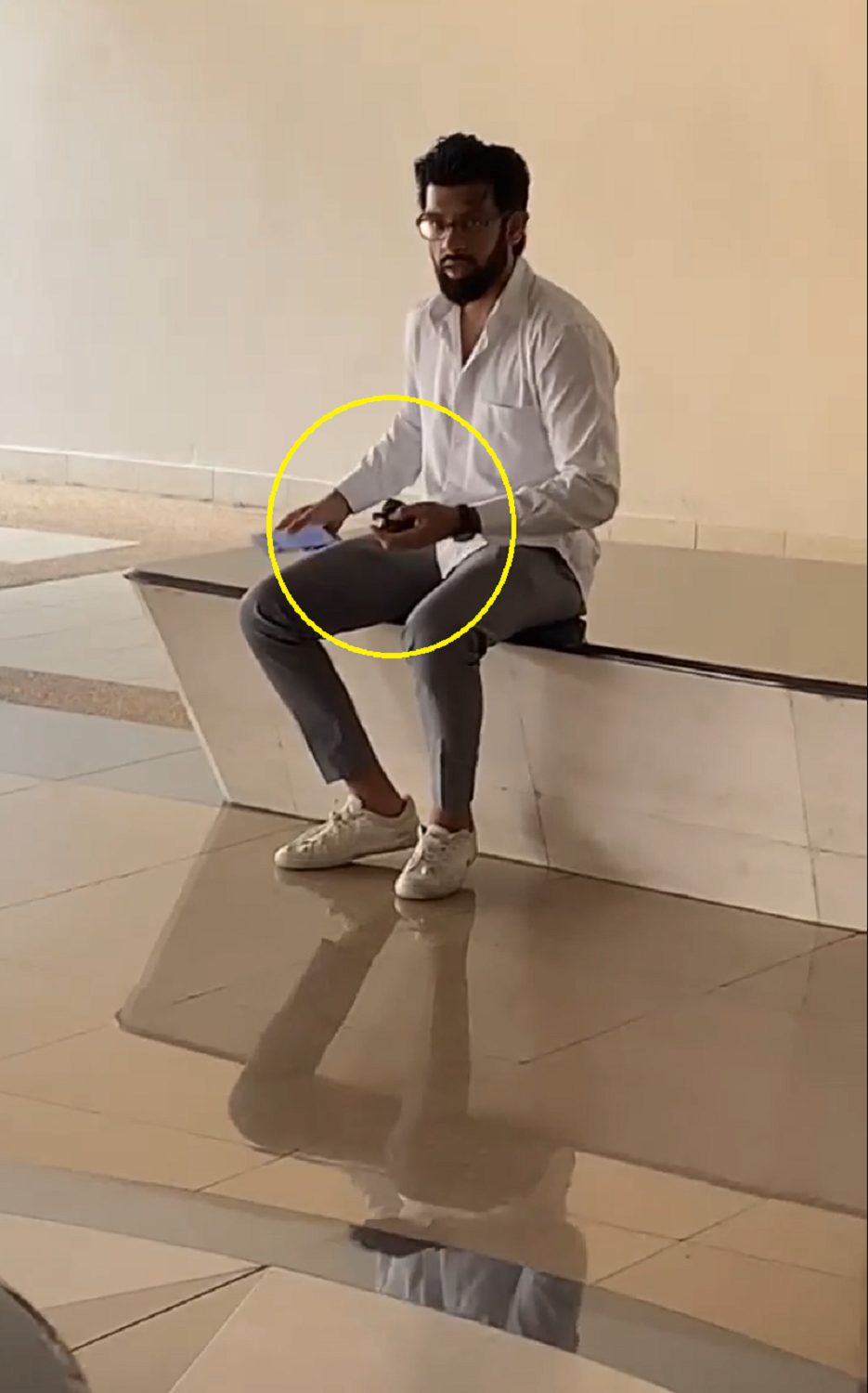#87
Jail for man who assaulted fellow poker player for cheating, took S$70,000 from his bank account
By LOUISA TANG
Published AUGUST 23, 2021
Nuria Ling/TODAY
Kesigan Emmanuel Santhakumar at State Courts on Aug 23, 2021.
- Kesigan Emmanuel Santhakumar, 26, organised a poker session that exceeded the maximum group size allowed under Covid-19 laws
- He accused a fellow player of cheating and demanded compensation
- He then beat the victim up and transferred S$70,000 out of the victim’s account without his consent
- He was jailed three months and five weeks for his actions
SINGAPORE — Not content with breaching Covid-19 safe distancing laws by hosting poker sessions with more than a dozen other players, Kesigan Emmanuel Santhakumar confronted one of them for cheating.
He and a few friends soon beat the victim up, before he logged into the victim’s internet banking account and transferred S$70,000 to his friend’s account.
He also made the victim sign a handwritten document declaring that the “debt” had been paid off.
On Monday (Aug 23), Kesigan, 26, was sentenced to three months and five weeks’ jail for his actions on July 29 last year.
Singapore was in its second phase of reopening at the time, with only five people allowed to gather for social purposes to stem the spread of Covid-19.
Kesigan pleaded guilty to one charge each of voluntarily causing hurt to Mr Ian Lee Enyuan, 32, unauthorised modification of computer material, and exceeding the maximum group size allowed.
Four other charges, including extortion, were taken into consideration for sentencing.
At least one other man involved, Daryl Tan You Ming, has been dealt with.
Tan was jailed and fined in June after letting Kesigan use the warehouse unit he rented at the Northstar @ AMK building, located along Ang Mo Kio Avenue 5, to play poker. Tan had also joined in the assault.
HOW IT BEGAN
A few days before the poker game was to be held, Tan handed over his set of keys to his friend, who then passed it to Kesigan.
Before this, Tan had also allowed Kesigan to use the unit to host poker games on a few occasions.
When the game — a popular variant of the card game known as Texas hold ‘em poker — started at about 10pm on July 28 last year, at least 18 people were playing. Each game comprised up to 10 players and a dealer.
The composition of the group changed frequently as several persons came and left after playing a few rounds of poker.
At about 3am, eight people were left at the unit including Tan, Mr Lee and Kesigan.
Kesigan then asked to speak to Mr Lee privately and confronted him about his cheating. However, Mr Lee denied this, claiming he had made a mistake in covering two poker cards on the table.
Sometime later, Kesigan confronted Mr Lee again and he denied the cheating allegation once more. Kesigan told him that according to conventional poker rules, whoever cheated during a game would have to compensate all players seven times of their buy-in chip amounts.
Kesigan then asked Mr Lee to compensate S$50,000 — 15 buyers’ buy-in amounts.
Mr Lee bargained for an amount of S$900, saying he had this in his bank account. Kesigan saw red and punched him on the nose.
Mr Lee started bleeding profusely and the group demanded to know how much personal savings he had, but he refused to share this.
When they checked his bag, they found a mobile phone and began questioning him more aggressively, believing he was lying about the true state of his personal finances. He then agreed to unlock the phone.
GOT INTO VICTIM’S INTERNET BANKING ACCOUNT
Kesigan also asked Mr Lee to hand over his wallet. When he found a DBS debit card, Mr Lee said it was not his and that there was no internet banking account linked to it.
Kesigan then used the card to buy 40 iPhones from e-marketplace Lazada and waited for the one-time password to be sent to the phone. He discovered that the password had been sent to a second mobile phone in Mr Lee’s bag, and also found Mr Lee’s internet banking token.
Angry at this, Kesigan kneed Mr Lee in the face and the group began assaulting him.
Kesigan later got into Mr Lee’s internet banking account through the DBS mobile application.
Upon discovering Mr Lee had S$73,000 in his account, Kesigan increased the funds transfer limit to S$70,000 and transferred this sum to his friend’s account. The friend was identified only as Razzab in court documents.
After this, the group prepared a handwritten document for Mr Lee to declare that he owed Kesigan S$70,000 and that the debt had been paid off, and that he did not wish to pursue the matter further.
Kesigan took a video of Mr Lee signing this document.
Mr Lee was taken to the National University Hospital later that evening after lodging a police report. He suffered a small cut on his face and a possible broken nose.
For breaking Covid-19 laws, Kesigan could have been jailed for up to six months or fined up to S$10,000, or punished with both.
For voluntarily causing hurt, he could have been jailed for up to three years or fined up to S$5,000, or both. And for unauthorised modification of computer material, he could have been jailed for up to three years or fined up to S$10,000, or both.





















